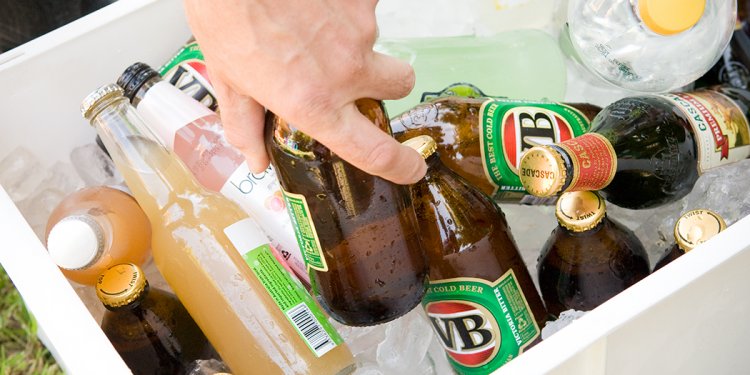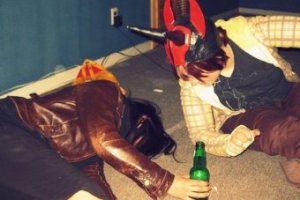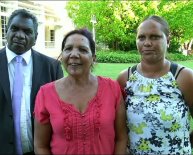
Australian drinking culture
 Updated
Updated
Australians are going to have to wish for more than 'good health' before a bout of binge-drinking to avoid sobering consequences to their mental health.
Australian Medical Association vice-president Stephen Parnis described Australia's relationship with alcohol as "extremely unhealthy" and said its impact was "in a class of its own".
"It causes more harm than all other drugs combined, " he told the ABC.
Dr Parnis said despite some improvement in the country's attitude towards alcohol, it remained a cultural issue.
"We're dealing with a cultural problem from 1788 where alcohol has been a core aspect of Australian life.
"There is still significant pressure not just to drink, but to drink to excess.
"There is ignorance within the Australian population [to] what constitutes a safe amount of alcohol, and most people underestimate their intake."
The Australian Drug Foundation defines binge drinking as "drinking heavily over a short period of time with the intention of becoming intoxicated".
National Drug and Alcohol Research Centre (NDARC) director Professor Michael Farrell said more than a third of the population drank in a manner hazardous to health.
"But it can be said the data indicates things have been pretty flat-lined over the last few years, " he said.
"But the sting in the tail of that is there has been a division within some people drinking less and some drinking more."
ABS data released earlier this year shows alcohol consumption in 2013-14 was at its lowest level since the 1960s.
But while drinking may be at 50-year low, analysis of two ABS data surveys - 2001 and 2011-2012 - by the Medical Journal of Australia actually suggests consumption of alcohol has increased in recent years.
Killing off brain cells 'not just a saying'
Dr Parnis said there was no doubt alcohol contributed to mental illness.
"You could say 20 to 25 per cent of the population suffers from serious depression at some stage of life, " he said.
"If you are depressed and intoxicated the risk of you causing self-harm or taking your own life dramatically increases.
According to beyondblue, 45 per cent of Australians will experience a mental health condition in their lifetime.
The community adage about losing one's neurons has some degree of truth.
AMA vice president Stephen Parnis
Federation for Alcohol Research and Education data shows there are close to 160, 000 alcohol-related hospitalisations every year.
Forty per cent of those are due to neuropsychiatric diseases for women, and 30 per cent for men.
"The community adage about losing one's neurons has some degree of truth, " Dr Parnis said.
"Neurons are permanent cells. They are not cells that can regrow."
"If you look at teenagers when they are introduced to alcohol at a time of considerable change in their lives ... some people can fall into substantial problems with that quite quickly.
"Self-harm, depression, anxiety, suicide risk — they all shoot up around this time."
Data from the US National Alliance on Mental Illness shows 25 per cent of people who develop a mental health disorder during their lifetimes will have onset by age 7, 50 per cent by age 14 and 75 per cent by age 24.
Cheap Tuesday, Thirsty Thursday
Nineteen-year-old Queenslander Tara was a straight-A student with a hard-earned bank balance and boyfriend.
But things took a boozy turn when the five-year relationship broke down. She started drinking heavily and as a result was flunking school and burning through her savings.
"Sometimes I would go out Friday, Saturday and Sunday night, " Tara said.
She said peer-pressure played a significant role in her drinking choices.
"It's outrageous how much you're expected to drink and how often [at uni]. In college it's full on — you drink during the week, you have Cheap Tuesday and Thirsty Thursday, then you drink all weekend."
After a blurry semester, Tara's lack of funds and struggle with depression, which she had been diagnosed with the year prior, prompted a wake-up call.
It got pretty dark for me, I stopped taking my antidepressants.
Tara, 19
"I've worked since I was 13 and always had savings. It was bizarre for me not to have savings, " she said.
"It got pretty dark for me, I stopped taking my antidepressants."
Despite this, Tara believes drinking is not dangerous if done responsibly.
"I still drink [but] I'm drinking less often and more responsibly. My grades are the best they've ever been. I'm focusing on my mental health, " she said.














